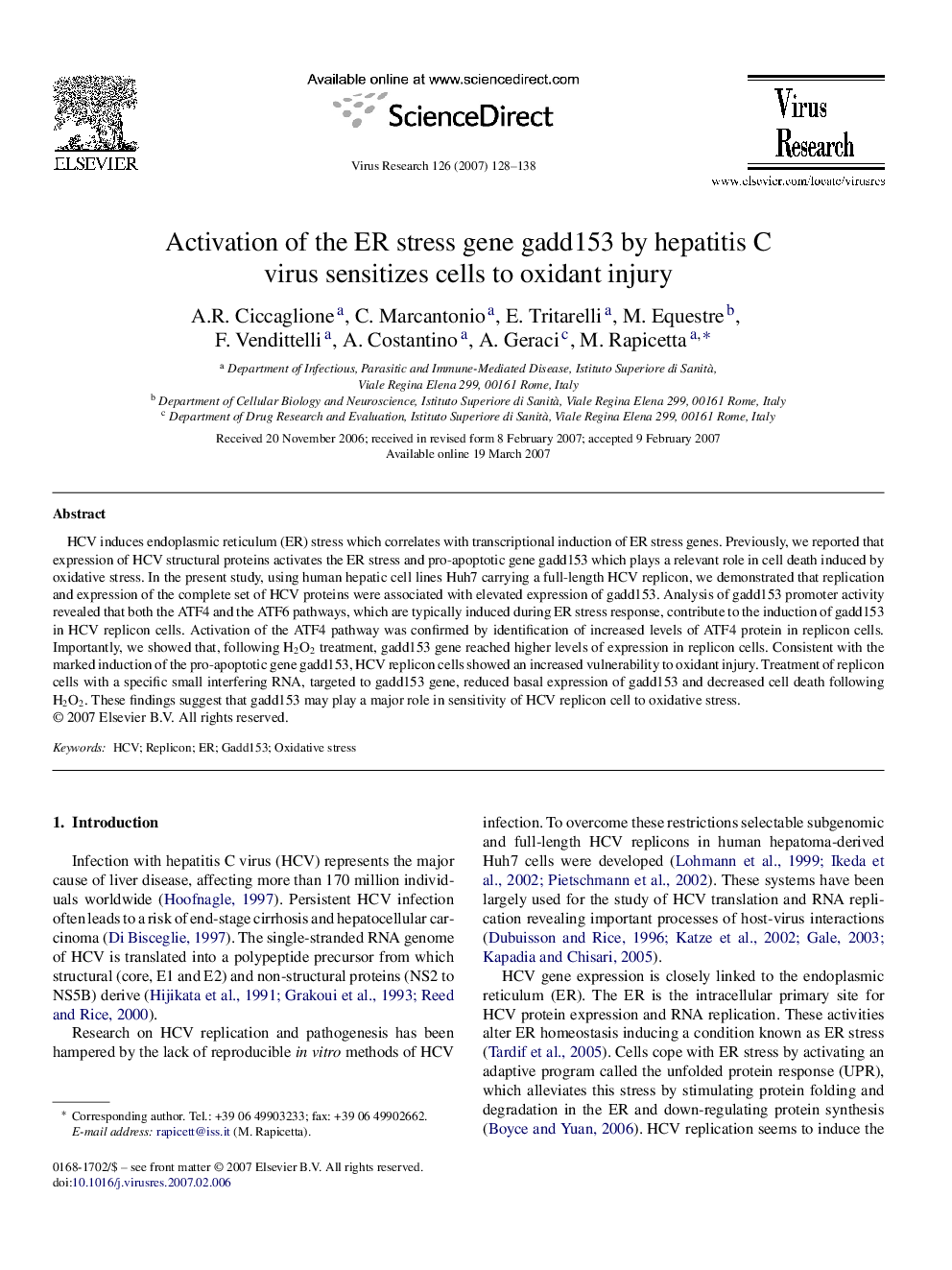| Article ID | Journal | Published Year | Pages | File Type |
|---|---|---|---|---|
| 3430903 | Virus Research | 2007 | 11 Pages |
HCV induces endoplasmic reticulum (ER) stress which correlates with transcriptional induction of ER stress genes. Previously, we reported that expression of HCV structural proteins activates the ER stress and pro-apoptotic gene gadd153 which plays a relevant role in cell death induced by oxidative stress. In the present study, using human hepatic cell lines Huh7 carrying a full-length HCV replicon, we demonstrated that replication and expression of the complete set of HCV proteins were associated with elevated expression of gadd153. Analysis of gadd153 promoter activity revealed that both the ATF4 and the ATF6 pathways, which are typically induced during ER stress response, contribute to the induction of gadd153 in HCV replicon cells. Activation of the ATF4 pathway was confirmed by identification of increased levels of ATF4 protein in replicon cells. Importantly, we showed that, following H2O2 treatment, gadd153 gene reached higher levels of expression in replicon cells. Consistent with the marked induction of the pro-apoptotic gene gadd153, HCV replicon cells showed an increased vulnerability to oxidant injury. Treatment of replicon cells with a specific small interfering RNA, targeted to gadd153 gene, reduced basal expression of gadd153 and decreased cell death following H2O2. These findings suggest that gadd153 may play a major role in sensitivity of HCV replicon cell to oxidative stress.
